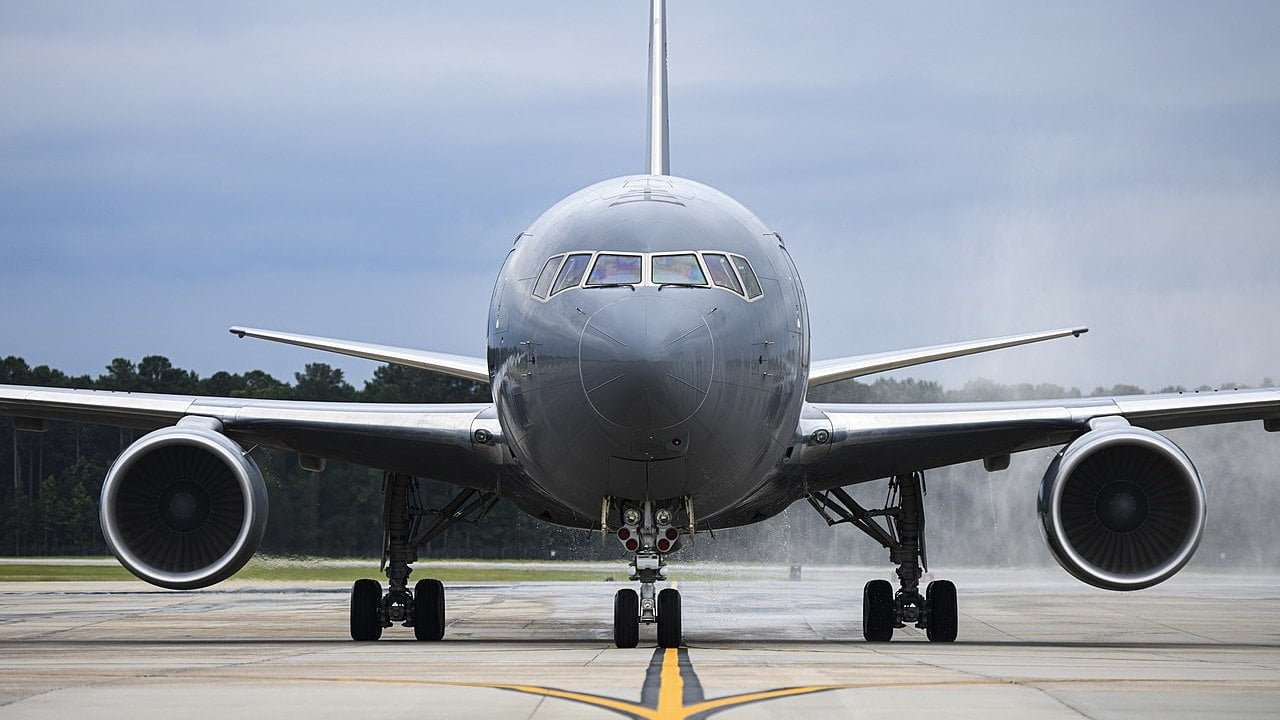The Boeing KC-46 Pegasus refueler only recently entered service with the U.S. Air Force, which intends to procure 179 of them by 2027. Yet multiple design problems have placed the future of the airframe in peril. The problems are so profound that the Government Accountability Office has warned the Air Force to reconsider its purchase of the KC-46.
“The Air Force now plans to commit to the new design…before all of the technologies are adequately developed – risking further delays and increased costs,” the GAO report cautions, “our recommendations to the Air Force include that it fully assess and test the KC-46 technologies.”
In other words, make sure the thing works before you buy it.
A Reliable Predecessor
The KC-46 Pegasus is a modified version of the Boeing 767. The airframe was designed as a replacement for another Boeing build, the aging KC-135 Stratotanker. The KC-135 first entered service during the Eisenhower administration, in 1957, and it has been used reliably ever since. The refueler’s planned replacement, on the other hand, has been a debacle.
For starters, the Pegasus’ Remote Vision System, or RVS, does not work. This is a problem. The RVS is a network of cameras and sensors that boom operators use to maneuver the refueling boom into other aircraft. The system is vital for refueling operations, which are of course the KC-46’s primary function. In 2021, Boeing spent $406 million fixing the faulty RVS. Older tankers like the KC-135 and KC-10 don’t have an RVS system. They instead rely on a window.
The RVS isn’t the only thing Boeing has had to fix; cost overruns now exceed $5.4 billion.
A Litany of Problems With the KC-46
The KC-46 also suffered a series of setbacks related to its Auxiliary Power Unit, or APU. First, the APU duct clamps were becoming loose or cracked. Second, the APU’s drain mast, which was not properly welded, tended to come loose during flight. The duct clamps were redesigned and retrofitted. A new and improved drain mast is still being tested.
In-air refueling tests revealed further problems in the KC-46. A 2015 test had to be aborted when the KC-46’s refueling boom produced higher-than-expected axial loads while refueling a C-17 transport plane. Apparently, the problem resulted from the turbulent bow-wave effect, a phenomenon caused by two large aircraft flying in a line. Fixing the problem cost $835 million.
In 2020, the Air Force became aware of chronic leaks in the Pegasus’ fuel system. Aircrews discovered fuel moving between the primary and secondary fuel protection barriers. It was one more problem in what appears to be a chronically flawed project. Fifty-seven KC-46s are already in service. But because of the persistent, numerous defects, the aircraft will not be combat-ready for another few years, leaving the Air Force searching for ways to use their new tankers.
“As I look over the 10 years, I have to say…right now where we’re at in the program is we’re making lemonade out of lemons,” Air Force Gen. Jacqueline Van Ovost, head of Air Mobility Command, said in 2021. “We are exploring limited operational capability for the KC-46.”
The program is already years behind schedule, and the Air Force is only accepting delivery of two KC-46s per month. With the GAO cautioning against further KC-46 procurement, the future of the program seems to be in doubt.
Harrison Kass is a Senior Defense Editor at 19FortyFive. An attorney, pilot, guitarist, and minor pro hockey player, he joined the US Air Force as a Pilot Trainee but was medically discharged. Harrison has degrees from Lake Forest College, the University of Oregon, and New York University. He lives in Oregon and regularly listens to Dokken.

